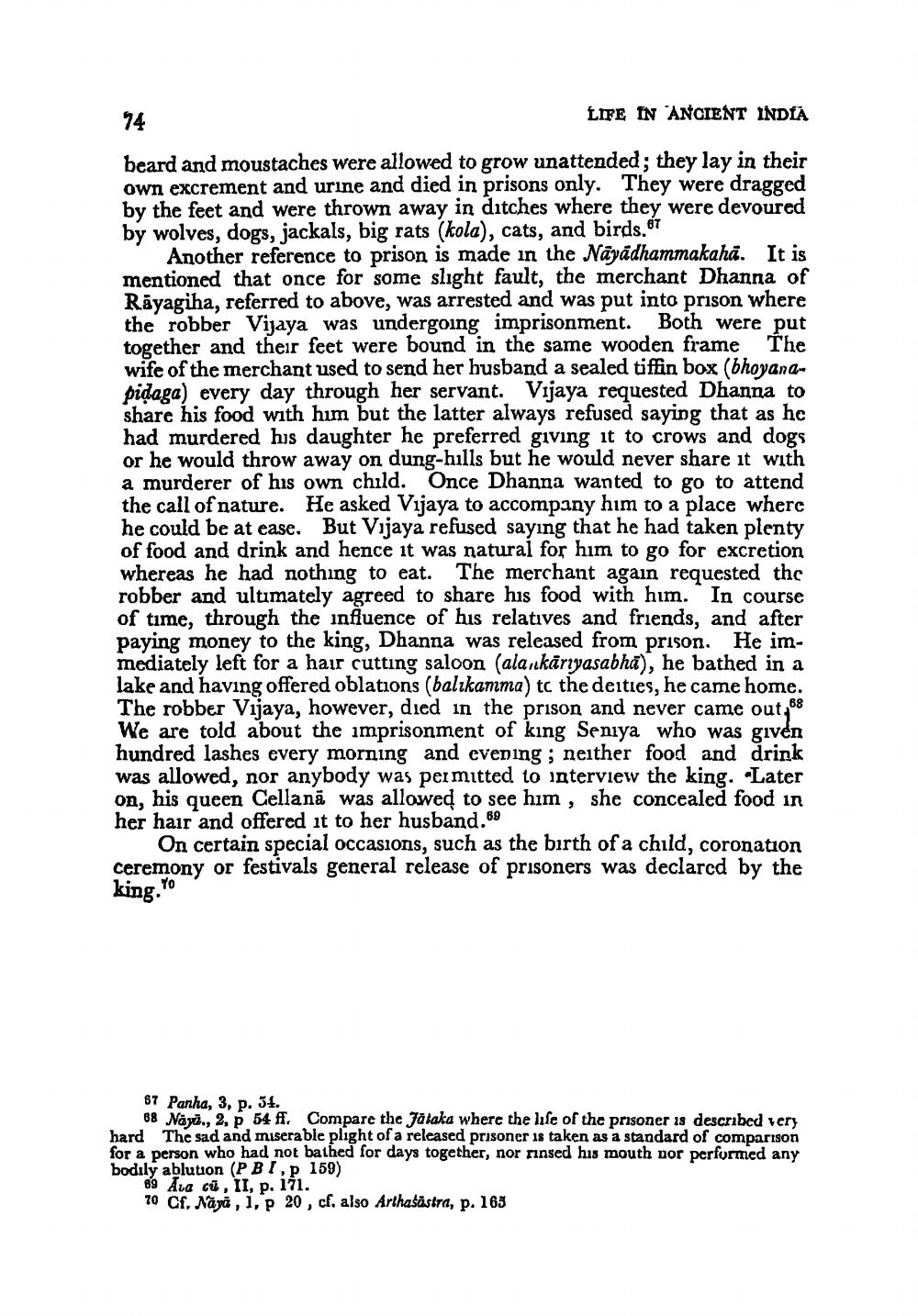________________
74
LIFE IN ANCIENT INDIA
beard and moustaches were allowed to grow unattended; they lay in their own excrement and urine and died in prisons only. They were dragged by the feet and were thrown away in ditches where they were devoured by wolves, dogs, jackals, big rats (kola), cats, and birds.07
Another reference to prison is made in the Nayādhammakahā. It is mentioned that once for some slight fault, the merchant Dhanna of Räyagiha, referred to above, was arrested and was put into prison where the robber Vijaya was undergoing imprisonment. Both were put together and their feet were bound in the same wooden frame The wife of the merchant used to send her husband a sealed tiffin box (bhoyanapidaga) every day through her servant. Vijaya requested Dhanna to share his food with him but the latter always refused saying that as he had murdered his daughter he preferred giving it to crows and dogs or he would throw away on dung-hills but he would never share it with a murderer of his own child. Once Dhanna wanted to go to attend the call of nature. He asked Vijaya to accompany him to a place where he could be at ease. But Vijaya refused saying that he had taken plenty of food and drink and hence it was natural for him to go for excretion whereas he had nothing to eat. The merchant again requested the robber and ultimately agreed to share his food with him. In course of time, through the influence of his relatives and friends, and after paying money to the king, Dhanna was released from prison. He immediately left for a hair cutting saloon (alaukāriyasabhā), he bathed in a lake and having offered oblations (balıkamma) tc the deities, he came home. The robber Vijaya, however, died in the prison and never came out,88 We are told about the imprisonment of king Seniya who was given hundred lashes every morning and evening ; neither food and drink was allowed, nor anybody was permitted to interview the king. Later on, his queen Cellanā was allowed to see him, she concealed food in her hair and offered it to her husband.69
On certain special occasions, such as the birth of a child, coronation ceremony or festivals general release of prisoners was declared by the king.
67 Panha, 3, p. 34.
68 Näyü., 2, p 54 ff. Compare the Jataka where the life of the prisoner is described very hard The sad and miserable plight of a released prisoner is taken as a standard of comparison for a person who had not bathed for days together, nor rinsed his mouth nor performed any bodily ablution (PBI,P 159)
89 Ava cū, II, p. 171. 70 Cf, Navā, 1, p 20, cf. also Arthaśāstra, p. 165




